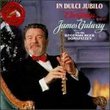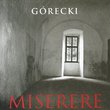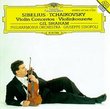| All Artists: Sherrill Milnes, Arnold Schoenberg, Ludwig van Beethoven, Erich Leinsdorf, Josephine Veasey, Boston Symphony Orchestra, Jane Marsch, Jane Marsh, Plácido Domingo Title: Beethoven: Symphony No. 9 "Choral"; Schoenberg: Survivor from Warsaw Members Wishing: 0 Total Copies: 0 Label: RCA Release Date: 6/6/2000 Album Type: Enhanced, Original recording remastered Genre: Classical Styles: Opera & Classical Vocal, Historical Periods, Classical (c.1770-1830), Symphonies Number of Discs: 1 SwapaCD Credits: 1 UPC: 090266368228 |
Search - Sherrill Milnes, Arnold Schoenberg, Ludwig van Beethoven :: Beethoven: Symphony No. 9 "Choral"; Schoenberg: Survivor from Warsaw
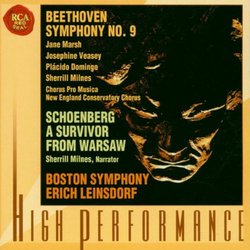 | Sherrill Milnes, Arnold Schoenberg, Ludwig van Beethoven Beethoven: Symphony No. 9 "Choral"; Schoenberg: Survivor from Warsaw Genre: Classical |
Larger Image |
CD DetailsSimilarly Requested CDs
|
CD ReviewsA Stunning Couple of Beethoven and Schoenberg msafier | Buenos Aires, ---- Argentina | 06/15/2000 (5 out of 5 stars) "This recording was made in April 1969 following the farewell concert of Erich Leinsdorf as Music Director of the Boston Symphony Orchestra with the same programme. For that ocasion Maestro Leinsdorf choose Beethoven's 9th preceded with Schoenberg's short but dramatic and intense work. This is a demonstration of Leinsdorf as a smart concert scheduler: both works speak on freedom and human rights, besides the great differences in motivation and inspiration. The results are terrible. Sherril Milnes as narrator in A Survivor form Warsaw frezees one's blood, exposing al terror from the nazis invading the Jewish ghetto (it is told that Schoenberg heard the story from an actual survivor and composed the work on it). Leinsdorf's Beethoven is a well paced, classic performance. You will not find here spectacular sounds, just an honest and exact performance with great sound form the Bostonians in a very german style. Timpani have a great presence and execution, also the chorus and the soloists. Besides, this is the first Ninth sung by Domingo, then an ascending star in the opera arena who had just signed an RCA contract. Recording is clear, wide and detailed." Powerful Music with Powerful A Powerful Theme Rudy Avila | Lennox, Ca United States | 10/07/2000 (5 out of 5 stars) "Beethoven and Schoenberg are two perfect examples of composers who have put power into music through selecting a powerful theme. Beethoven, in fact, had an influence in Schoenberg's music. The 9th symphony and Survivor from Warsaw are excellent pieces that are connected and can be performed at a concert. In fact, it has been. I attended a concert featuring both works with the Los Angeles Philharmonic performing, under the baton of newcomer Esa Peka Salonen. Schoenberg put the words of a Jewish survivor from Warsaw and made it into a short but grandiose work for chorus and orchestra. It is chilling and dark but it is an excellent prelude to Beethoven's 9th. The Ninth expresses the horrors that mankind can create, such as is the Holocaust and in the case of Beethoven's period, the Napoleonic Wars. But the tremendous fury of the opening movement and the scherzo can express any war at any time. The Adagio offers hope of peace and is sublime, a great and nearly religious-like prelude to the final movement with chorus. This was the first symphony ever to use chorus, later composers would use this method. "Ode to Joy " based on Schiller's poem became a fanfare for freedom and brotherhood of mankind thanks to Beethoven. It is so popular that even films and televisions use it in moments of victory. Together, Schoenberg and Beethoven have created powerful music. A must have." Some of Leinsdorf's Best from Boston T. Beers | Arlington, Virginia United States | 01/04/2002 (5 out of 5 stars) "Erich Leinsdorf's stint as music director of the Boston Symphony lasted from 1962 through 1969; these recordings were made at the very end of his tenure and they are glorious. The performance of the Ninth Symphony is lean, beautifully articulated and powerful, rather in the manner of Toscanini, Szell or Reiner. But unlike other, to my ears rather impersonal sounding Leinsdorf/BSO Beethoven symphony recordings, here the conductor seems thoroughly engaged with the music. And undoubtedly that is the result of the brilliant theatrical stroke of preceding the performance of Beethoven's paean to triumphant humanism with Schoenberg's shattering little cantata about the Holocaust. Leinsdorf insisted that this juxtaposition, one he had devised for his final public appearance as BSO Music Director at Tanglewood, should also appear on his recording of the Beethoven symphony. And it is positively chilling how the Schoenberg seems to fade into the opening string tremolos of Beethoven's so-familiar first movement. Once you experience Leinsdorf's performance of these two masterpieces you will never hear either the same way again. (I especially recommend the experience to those for whom the Ninth has become perhaps too familiar.) An amazing, unique experience. Sound quality is superb, completely living up to BMG's promotional hype about its 96/24 remastering process. Given BMG's recent pull-back from serious classical recording projects, listeners should rush out to buy this gem before it disappears, perhaps forever."
|

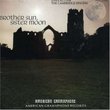

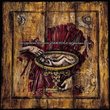


![Across The Universe [Deluxe Edition]](https://nationalbookswap.com/cd//m/51/1251/1241251.jpg)
